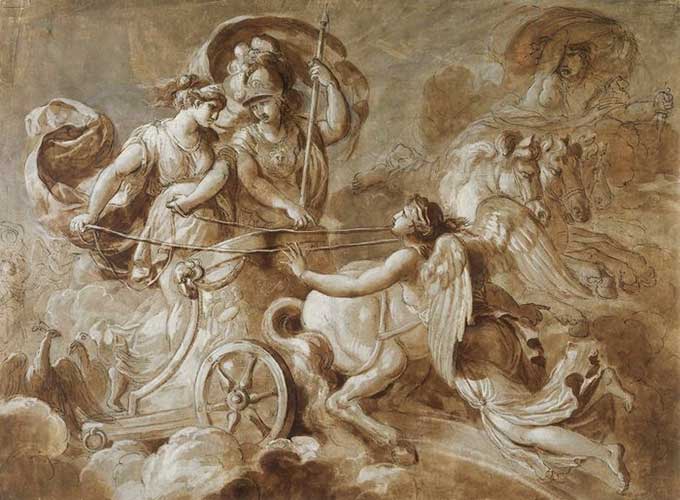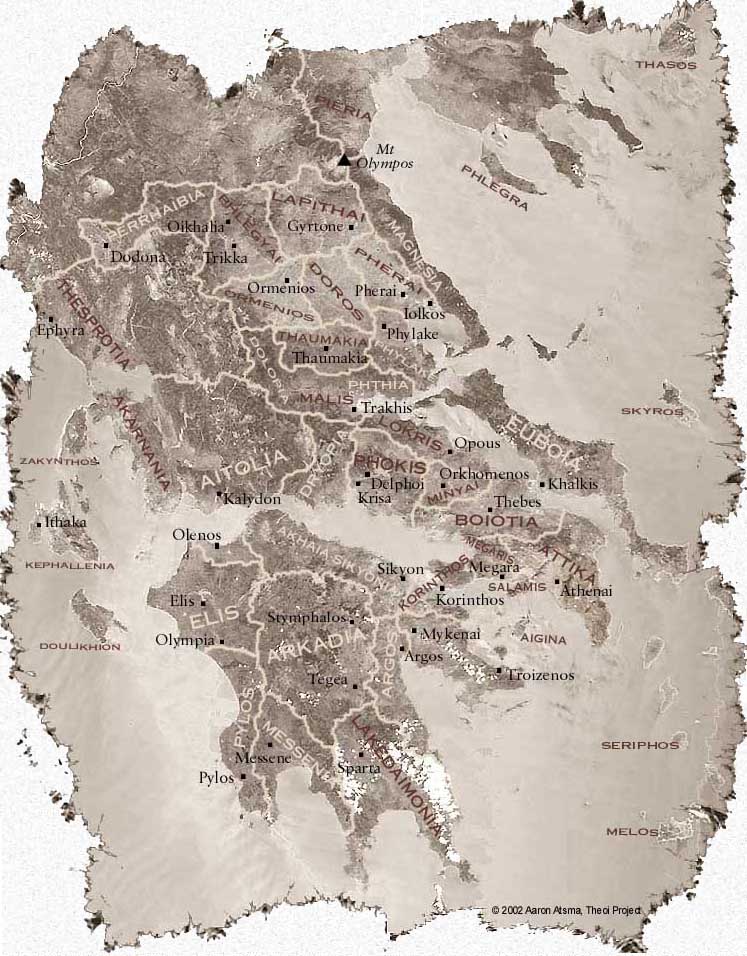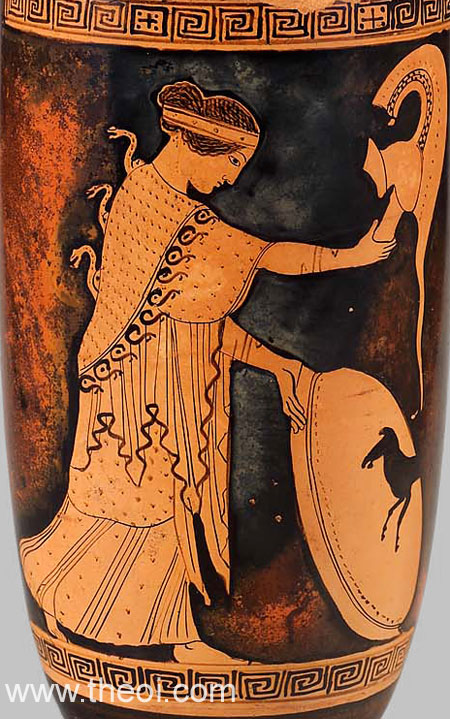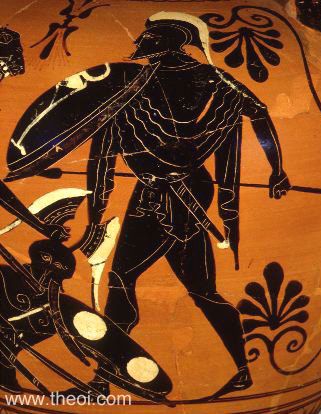
The Trojan War was a war between the Greeks (Achaeans) and the city of Troy. This all happened after Paris of Troy took Helen from her husband, the king of Sparta Menelaus. The Trojan War is one of the most important events to have occurred in Greek mythology and has been told in many works of Greek literature, the most notable being Homers Illiad.
The Illiad goes through the period of four days and two nights in the tenth year of the decade-long siege of Troy; the Odyssey tells the story of the trip home for Odysseus. Other parts of the war are told in several other epic poems.
In this article, we’re going to go over a Trojan War summary so that you understand the story of the most famous Greek war in mythology.
Trojan War Background
The beginning of the Trojan war began with a prophecy regarding the order of the Olympians and a divine love contest. Namely, many years before the war’s beginning, both Poseidon and Zeus had fallen in love with a sea-nymph with the name Thetis. Both wanted Thetis to be his bride; however, they both backed off after they were told of the consequences that awaited them if they made such an action.
This consequence was that if the sea-nymph were to lay with Zeus or his brothers, that a son would be born who would be stronger than his father and possess a weapon that would be much more powerful than the trident or the thunderbolt. To avoid this from happening, Zeus made it so that Thetis would have to marry King Peleus.
After Thetis’ marriage was figured out, Zeus held a big feast to celebrate Peleus’ and Thetis’ marriage, where all of the gods were invited – except for the goddess of strife, Eris. The goddess was annoyed at the fact that she was turned away that before she left the gathering, she flung her gift amongst the crowd of guests; this gift was called the Apple of Discord, which was a golden apple with the words, “for the fairest” inscribed on it.
Not too long after the apple was thrown, Aphrodite, Athena, and Hera began to fight about who should have the apple. Zeus was unable to decide by himself, so he sent the goddesses to Paris, the prince of Troy, to decide.
Paris was unable to make a decision, so the goddesses started to bribe him. First, Hera offered to grant him political power and a throne if he were to choose her; then, Athena offered him wisdom and skills in battle; finally, Aphrodite promised Paris the most beautiful woman in the world, Helen of Sparta. Without batting an eyelash, Paris chooses Aphrodite.
However, Helen was already married to Menelaus, the king of Sparta. So, Paris, under the disguise of a diplomatic mission, went to Sparta to abduct Helen from her home so he could bring her back to Troy with him. Before Helen could look up to see Paris, she was shot with an arrow by Cupid, or Eros, and fell in love with Paris the moment she saw him.
There are other theories that Zeus started the Trojan War to kill off some of the population – especially of demigods. This is because Zeus had many relationships that resulted in the birth of many demigods, and he felt that the earth was overpopulated, and he wanted to depopulate it as much as possible. So, it’s said that he started the war to do this.
The Trojan War
The Trojan War can be said to have started shortly after the abduction of Helen. This is because Helen’s husband, Menelaus, got his brother, Agamemnon, to lead a voyage to find her and get her back. Agamemnon was able to get other Greek heroes, such as Odysseus, Ajax, Nestor, and Achilles, to join him on this adventure.
The Trojan War, which was punctuated by battles and skirmishes, lasted for ten years. It finally ended when the Greeks retreated from camp and left behind a large wooden horse outside the gates of Troy. Inside Troy, there were many debates on if they should bring the wooden horse in, including unheeded warnings by Cassandra, Priam’s daughter – ultimately, the horse was brought into the city.
The wooden horse was a plan made by Odysseus to end the war. The wooden horse was designed to be hollow in the middle so that soldiers could hide inside and then was wheeled in front of the city of Troy. After the Trojan Horse was left at the gates, the Greeks sailed away from Troy to the island of Tenedos, leaving behind one double agent named Sinon. He was able to convince the Trojans that the Greeks had retreated from the war and that the horse was a parting gift that would ultimately give the Trojans a fortune.
However, once nighttime fell, the horse opened up and out came the Greek soldiers. From the inside of the city, the Greeks were able to destroy the city of Troy and win the war.
The Aftermath of the Trojan War
The surviving Greek heroes learned the hard way that gods never forget and hardly forgive because even though they were victorious in the war, most of them were punished for their transgressions. In fact, only a handful of Greek soldiers made it back home, and that’s with several adventures and exploits along the way. Even fewer were welcomed back to their homes because they were killed by their loved ones or they were exiled into oblivion – there were some cases where both incidents happened.
Final Thoughts
The Trojan War was a huge and important war in Greek mythology. It was important because it’s the earliest recorded myth that we have that was written down, and it set the stage for the Odyssey and the Illiad.
Hopefully, from this summary of the Trojan War, you were able to learn enough about the war that you are able to understand why it happened and how it ended. This summary might not be the entire war, but it’s enough to help you get started on your journey of learning about Greek mythology.


